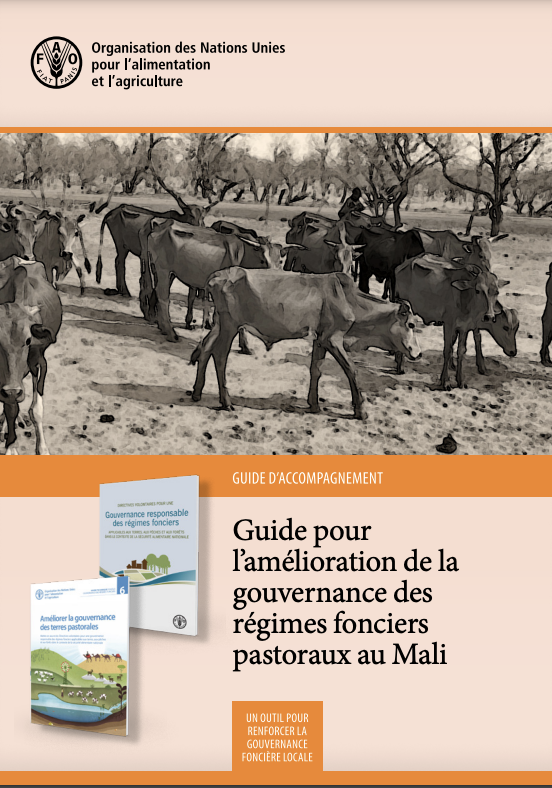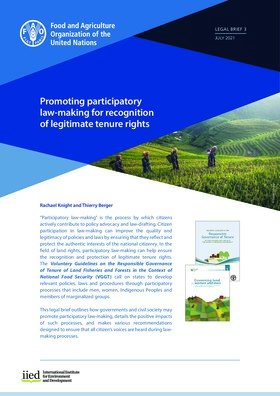Focal point
Location
The Food and Agriculture Organization of the United Nations leads international efforts to defeat hunger. Serving both developed and developing countries, FAO acts as a neutral forum where all nations meet as equals to negotiate agreements and debate policy. FAO is also a source of knowledge and information. We help developing countries and countries in transition modernize and improve agriculture, forestry and fisheries practices and ensure good nutrition for all. Since our founding in 1945, we have focused special attention on developing rural areas, home to 70 percent of the world's poor and hungry people.
Members:
Resources
Displaying 16 - 20 of 5083Guide pour l’amélioration de la gouvernance des régimes fonciers pastoraux au Mali
Ce guide en image est le fruit d’un travail de contextualisation du guide technique intitulé «Améliorer la gouvernance des terres pastoralies» mené par les deux partenaires Coordination nationale des organisations paysannes (CNOP) et le Centre sahélien de prestations, d’études, d’écodéveloppement et de démocratie appliquée (CSPEDDA) ainsi que leurs partenaires selon un processus participatif.
Guide pour l’amélioration de la gouvernance des régimes fonciers pastoraux en Mauritanie
Ce guide en image est le fruit d’un processus participatif et inclusif de renforcement des capacités des Comités régionaux de transhumance qui ont réuni plus de 90 participants (pasteurs/éleveurs, administration territoriales, conseils régionaux, structures techniques déconcentrées et décentralisées des différents départements ministériels clefs, les organisations de la société civile, ainsi que les représentants de projets et les organisations non gouvernementales (ONG) au niveau des Willayas pastorales).
Promoting participatory law-making for recognition of legitimate tenure rights
"Participatory law-making” is the process by which citizens actively contribute to policy advocacy and law-drafting. Citizen participation in law-making can improve the quality and legitimacy of policies and laws by ensuring that they reflect and protect the authentic interests of the national citizenry. In the field of land rights, participatory law-making can help ensure the recognition and protection of legitimate tenure rights.
Protecting legitimate tenure rights: From concepts to practice
There is greater recognition that policies and projects should respect legitimate tenure rights. But this concept has often proved difficult to operationalise. Discusses the meaning and implications of recognising legitimate tenure rights;then outlines ways forward for States;civil society;the private sector;and development agencies.
Legal empowerment to promote legitimate tenure rights
Sustainable land governance requires that all members of a community have equal rights and say in decisions that affect their collectively held lands. Unfortunately women around the world have less land ownership and weaker land rights than men – but this can change and the WRI report shows ways how that can be done. It details case studies from communities in Cameroon;Mexico;Nepal;Indonesia and Jordan.










